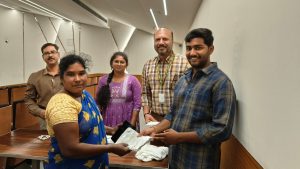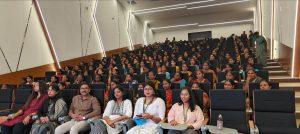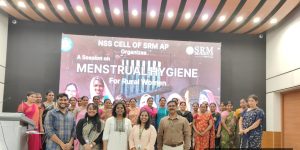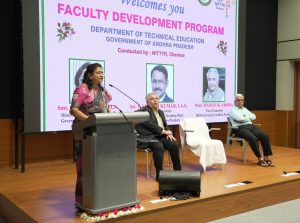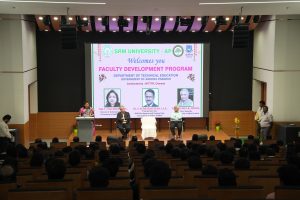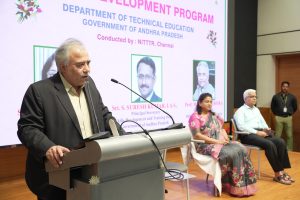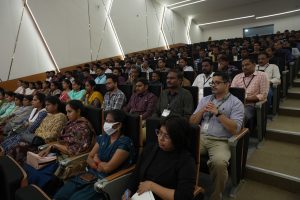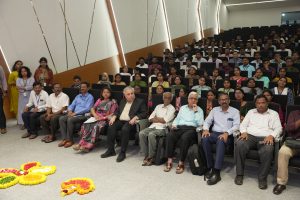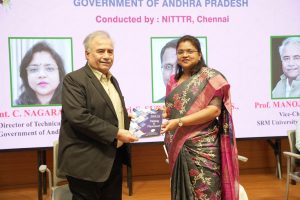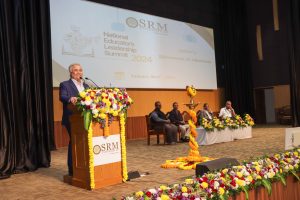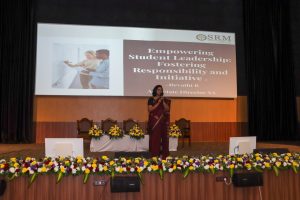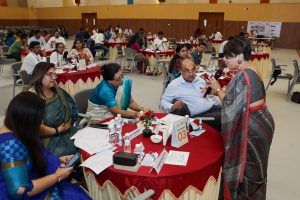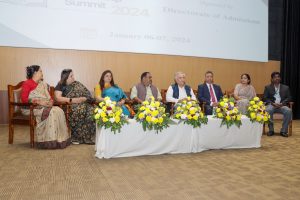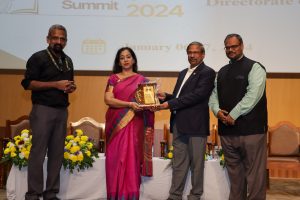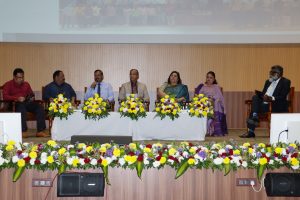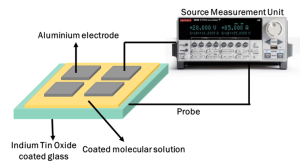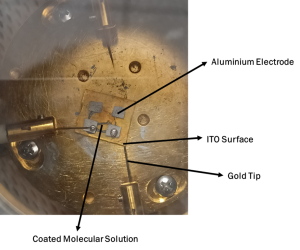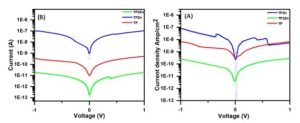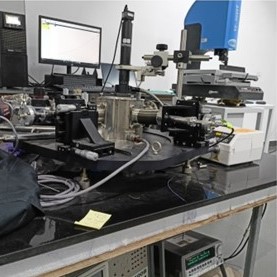NSS Cell Illuminates Women on Menstrual Hygiene
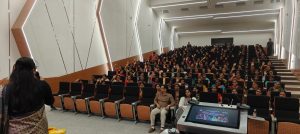 In a dedicated effort towards community welfare, the NSS Cell of SRM University-AP orchestrated a transformative awareness session on Menstrual Hygiene for rural women. Delivered by our esteemed University Counsellors, the session aimed to empower and educate women from nearby villages on essential menstrual hygiene practices.
In a dedicated effort towards community welfare, the NSS Cell of SRM University-AP orchestrated a transformative awareness session on Menstrual Hygiene for rural women. Delivered by our esteemed University Counsellors, the session aimed to empower and educate women from nearby villages on essential menstrual hygiene practices.
The engaging session delved into addressing the challenges faced by these women and dispelling myths surrounding menstruation. Harnessing the power of videos and captivating story narrations, the University Counsellors brought forth crucial information to raise awareness about this natural biological process.
Despite menstruation being a universal phenomenon, many rural women grapple with inadequate knowledge and resources, resulting in health complications, social stigma, and daily life limitations. The NSS Cell’s initiative sought to bridge this knowledge gap and provide practical insights.
Despite menstruation being a universal phenomenon, many rural women grapple with inadequate knowledge and resources, resulting in health complications, social stigma, and daily life limitations. The NSS Cell’s initiative sought to bridge this knowledge gap and provide practical insights.Through impactful story narrations, the session aimed to instill a sense of empowerment and confidence among the women, enabling them to manage menstruation with dignity. The Counsellors addressed prevalent myths surrounding menstruation, fostering an environment of openness, and understanding to eliminate social stigmas. Utilizing the visual medium, informative videos were showcased to provide a comprehensive understanding of menstrual hygiene practices. The overarching goal of this initiative was to ensure that every woman, irrespective of her background, gains access to vital information and resources for a healthier, stigma-free life.
SRM University-AP remains committed to its role as a catalyst for positive change, uplifting communities, and fostering holistic well-being.
- Published in Departmental News, News, student affairs news
NITTTR Faculty Development Programme : Empowering Polytechnic Educators
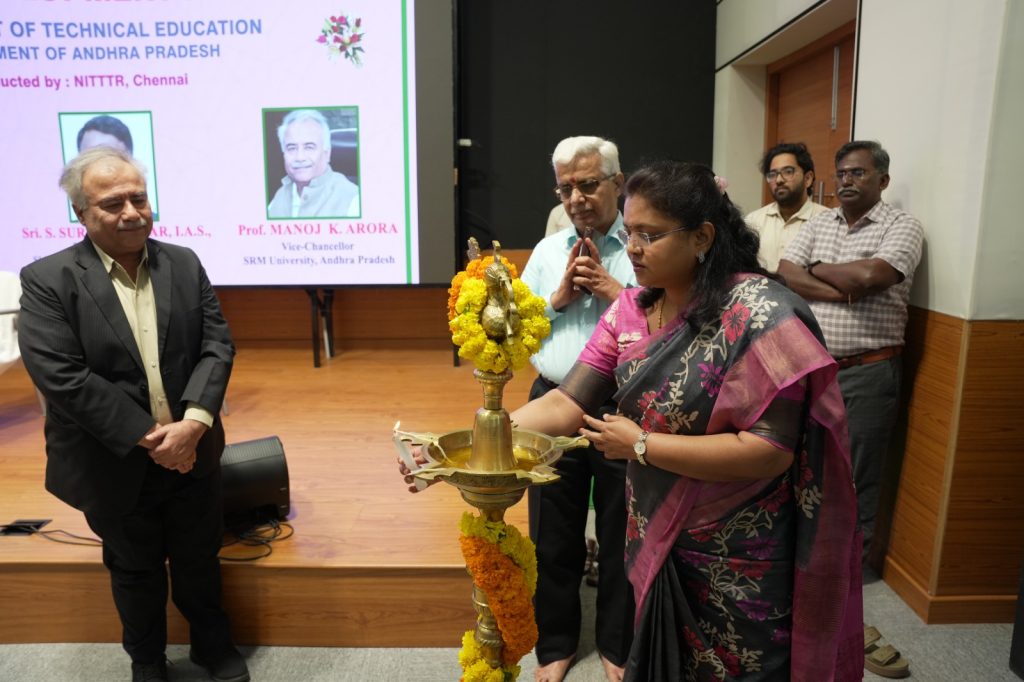
The National Institute of Technical Teachers’ Training and Research (NITTTR), Chennai conducted a six-day transformative Faculty Development Programme (FDP) at SRM University-AP. The FDP is tailored for Polytechnic educators from across the state of Andhra Pradesh. This initiative aligns with the NITTTR’s recent educational reforms, specifically the revamping of their curricula. Distinguished guests, including Director of Technical Education and IAS officer Ms C Naga Rani; SRM University-AP Vice Chancellor, Prof. Manoj K Arora; and Prof. Nagendra Rao, a distinguished Professor at NITTTR, Chennai along with other senior members of the fraternity graced the occasion.
In an inspiring address, Prof. Arora urged educators to transcend the conventional role of a teacher. He stated, “Do not take teaching as a mere job, a teacher is no more just a teacher, he/she is also a facilitator and mentor.” He stressed upon the importance of collaborative learning, encouraging educators to work hand in hand with students.
Furthermore, Prof. Arora extended the varsity’s support to the delegates in utilising the services of the university’s Teaching and Learning Centre (TLC), a platform that equips the faculty and students to enhance and evolve the teaching and learning pedagogy.
The Director of Technical Education in her address stated the need to regard “the youth as the symbol of the nation’s energy and hope.” She implored the educators to motivate more female students to pursue technical education. Prof. Nagendra Rao elucidated the manifold benefits the FDP brings to faculty and, consequently, the students.
- Published in News
“Shaping Leaders of Tomorrow”- National Educator’s Leadership Summit 2024
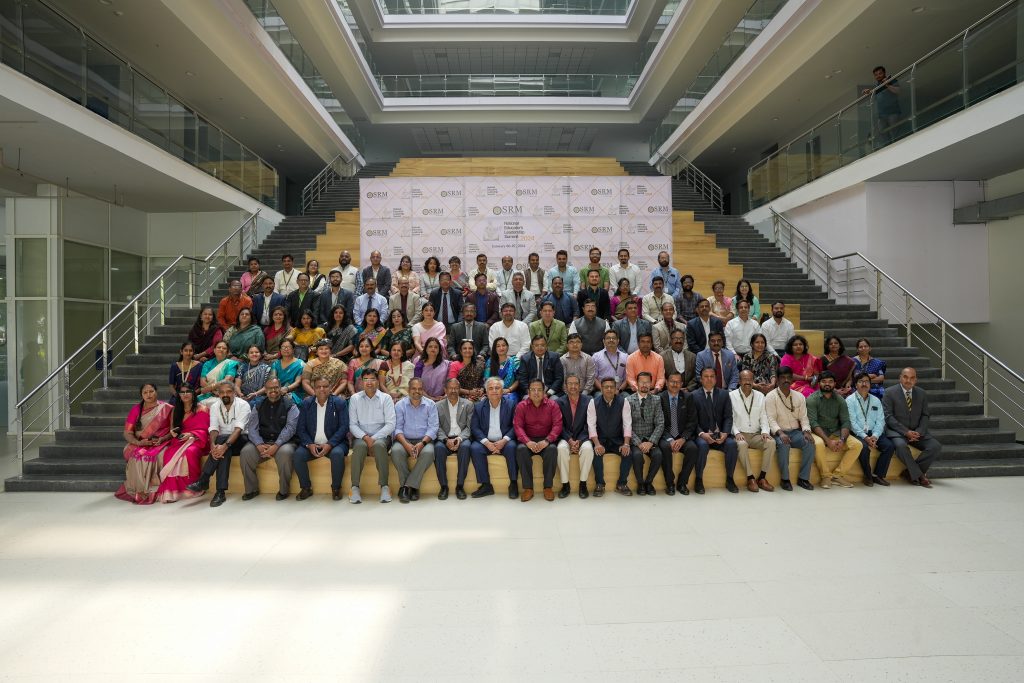
“Schools and universities must join hands for the future of our students”, commented Prof. Manoj K Arora, Vice Chancellor, SRM University-AP, in his session on the Future Trends in Education at the National Educator’s Leadership Summit 2024 organised by the varsity on January 06-07, 2024. The two-day Educational Conclave, under the aegis of the Directorate of Admissions, hosted 45 school principals from across 26+ cities in India who participated in addressing the future of national education and the need for emphasising holistic development, skill enhancement and learner-centric approach to empower students and nurture the skills and knowledge essential for their professional growth.
Prof. Y Siva Sankar, Director – Admissions, SRM University-AP remarked that the Summit facilitated a dynamic platform to exchange ideas, share practices and collectively chart strategies to implement reforms that will shape the education system of our nation.
Insightful sessions, panel discussions, and interactive lectures were the highlights of the summit. The first day of the conclave featured informative sessions on Empowering Student Leadership, Raising Awareness of Emotional Intelligence in Students, Enhancing Student Entrepreneurship, Effective Classroom Management Techniques and Challenges in Indian Education by the deans and academic leaders of the university. “Students learn by themselves; Creating ideas and building innovations through digital literacy. It is time we adopt an experiential learning approach to disseminate them with skills for the global world”, commented Surajit Sen, Principal – Jharkhand Public School during an exchange of views on present Indian education.
Discourses on Future Trends in Education and Insights from Directors of SRM University-AP in promoting Entrepreneurship, Higher Studies and International Collaborations on the final day provided valuable insights to principals encouraging them to implement transformative initiatives in their curriculum to foster holistic development in students.
The National Educator’s Leadership Summit successfully concluded with Dr R Premkumar, Registrar; Prof. Y Siva Sankar, Director- Admissions; and Prof. Vishnupad, Dean – Easwari School of Liberal Arts honouring the participating principals with a memento as a token of gratitude for their dynamic participation in the conclave striving towards the collective cause of transforming the future of Indian education.
- Published in News
Unveiling a Realm of Possibilities in the Field of Material Science
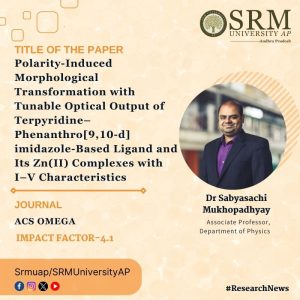 Dr Sabyasachi Mukhopadhyay, Associate Professor in the Department of Physics at SRM University-AP recently published a paper, titled “Polarity-Induced Morphological Transformation with Tunable Optical Output of Terpyridine–Phenanthro[9,10-d] imidazole-Based Ligand and Its Zn(II) Complexes with I–V Characteristics,” in the prestigious journal “ACS Omega.” Notably, “ACS Omega” is a Q1 journal with an impact factor of 4.1. This groundbreaking work delves into the polarity-induced morphological transformations and tunable optical outputs of Terpyridine–Phenanthro[9,10-d] imidazole-based ligands and their Zn(II) complexes. The study also explores their I–V characteristics, contributing valuable insights to the realms of materials science and chemistry.
Dr Sabyasachi Mukhopadhyay, Associate Professor in the Department of Physics at SRM University-AP recently published a paper, titled “Polarity-Induced Morphological Transformation with Tunable Optical Output of Terpyridine–Phenanthro[9,10-d] imidazole-Based Ligand and Its Zn(II) Complexes with I–V Characteristics,” in the prestigious journal “ACS Omega.” Notably, “ACS Omega” is a Q1 journal with an impact factor of 4.1. This groundbreaking work delves into the polarity-induced morphological transformations and tunable optical outputs of Terpyridine–Phenanthro[9,10-d] imidazole-based ligands and their Zn(II) complexes. The study also explores their I–V characteristics, contributing valuable insights to the realms of materials science and chemistry.
Abstract
Self-assembled nanostructures obtained from various functional π-conjugated organic molecules have been able to draw substantial interest due to their inherent optical properties, which are imperative for developing optoelectronic devices, multiple-color-emitting devices with color-tunable displays, and optical sensors. These π-conjugated molecules have proven their potential employment in various organic electronic applications. Therefore, the stimuli-responsive fabrication of these π-conjugated systems into a well-ordered assembly is extremely crucial to tuning their inherent optical properties for improved performance in organic electronic applications.
To this end, herein, we have designed and synthesized a functional π-conjugated molecule (TP) having phenanthrol [9,10-d] imidazole with terpyridine substitution at the 2 position and its corresponding metal complexes (TPZn and (TP)2Zn). By varying the polarity of the self-assembly medium, TP, TPZn, and (TP)2Zn are fabricated into well-ordered superstructures with morphological individualities. However, this medium polarity-induced self-assembly can tune the inherent optical properties of TP, TPZn, and (TP)2Zn and generate multiple fluorescence colors.
Particularly, this property makes them useful for organic electronic applications, which require adjustable luminescence output. More importantly, in a 10% aqueous-THF medium, TPZn exhibited H-type aggregation-induced white light emission and behaved as a single-component white light emitter. The experimentally obtained results of the solvent polarity-induced variation in optical properties as well as self-assembly patterns were further confirmed by theoretical investigation using density functional theory calculations. Furthermore, we investigated the I− V characteristics, both vertical and horizontal, using ITO and glass surfaces coated with TP, TPZn, and (TP)2Zn, respectively, and displayed maximum current density for the TPZn-coated surface with the order of measured current density TPZn > TP > (TP)2Zn.
This observed order of current density measurements was also supported by a direct band gap calculation associated with the frontier molecular orbitals using the Tauc plot. Hence, solvent polarity-induced self-assembly behavior with adjustable luminescence output and superior I−V characteristics of TPZn make it an exceptional candidate for organic electronic applications and electronic device fabrication.
Research Explanation
Our investigation is based on the electron transport characteristics of molecules (voltage vs. current), which allows us to ascertain the molecule’s conductive capacities. The Janis probe station, which has four gold tips total is the primary instrument utilized in this investigation. To investigate the properties of electron transport, two gold tips were used: one in contact with an aluminum electrode and the other with an ITO surface. The current measurements for a given voltage of given molecules have been studied using a source measuring unit.
Application
- Our research study can be applicable to predict the good electron and hole transport layers for the Organic Light Emitting Diode (OLED) application.
- Organic field effect transistor (OFET) applications.
Collaborations
Dr. Priyadip Das, Associate Professor, Department of Chemistry,SRMIST
Pictures related to research
- Published in Departmental News, News, Physics News, Research News


